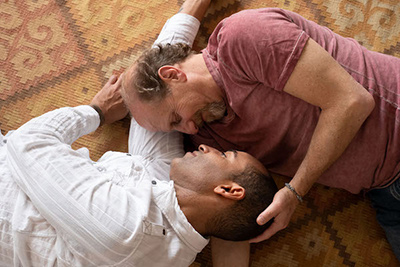As a community, we are becoming better at sexual health and consent negotiations. To my surprise, ‘intent’ is rarely part of the conversation. Perhaps it should be.

When talking to a new, potential intimate partner, a script is starting to develop around how the conversations go ahead of an interaction.
The conversation usually includes consent (this is what I want/don’t want , what do you want/not want?), and a conversation about sexual health, risks, and risk mitigation (number of current partners, last STI test and results, etc). Between those two conversations, you generally cover enjoyment and health, but there’s a big piece of the puzzle missing: Intent.
People choose to share physical intimacy for all sorts of reasons ; perhaps they enjoy the physical activity, maybe they want to feel intimacy, or it’s possible they want to chase orgasms together. No judgment here – enjoy sex and intimacy for whatever reasons fulfill you. Where things get murkier, is if there’s a lack of clarity about what each partner wants or intends from shared sexual intimacy.
Exploring Intention
Imagine, for example, that you have a long-standing friendship, and you are drawn to the other person sexually. You could have a consent conversation and a conversation about safer sex. Yet, not talking about your desires for what the sex will mean, could lead to complications or hurt down the road. Communicating your intent – about the feelings or outcomes you wish to experience as a result of shared physical intimacy – not only allows for a more nuanced consent conversation, but it can also spark greater intimacy through the self-revealing that this type of conversation requires.
Beginning an intent conversation can be something as simple as, “Hey, I want to explore a sexual connection with you, but for me, at this time, having sex once or twice is all that I’m looking for. Would that work for you?”

At that point, your friend has the information they need to make a choice. If they see the sexual interaction as a relationship escalation, and they think they may want to be ‘in a relationship’ with you, sharing your intentions provides them with good information.
And they now have a choice. They can state their own expectations, and how they differ. They can choose to have the interaction, with the understanding that it will not lead to a serious relationship. Or they can choose to say “You know… I am sexually attracted to you, but I don’t think a one- or two-time thing would work for me, so I’d rather we just stay friends.”
It’s important to recognize that it’s okay to not be entirely aligned in our intentions. For example, one person may be interested in satisfying a need for touch, while the other person is interested in satisfying a need for emotional closeness; it’s possible to meet both of these intentions in a given interaction. What’s important is that both partners understand where the other person stands, so that they can come to an agreement with full awareness about what to expect from one another.
It is worth highlighting, too, of course, that additional information may change how you feel about your imagined outcome. It’s possible that the sexual chemistry is great, and that what you intended as a one-night-stand blooms into something else. The opposite can also be true; perhaps friends are curious about what ‘more’ might look like, but after engaging in play, discover that there’s not as good of a match as they had hoped. That’s fine too . The key is in the communication and the after-care. Sexual consent for a particular activity can be withdrawn at any time – whether it’s our mood, or our intentions, that have changed. Having an intent mismatch is a perfectly fine reason to choose not to engage sexually with someone. Or maybe, you’ll discover you have even more to enjoy with each other when your intentions do align and you both know it.
Consent is about being open and honest about who you are and what you need. Learn to have those vulnerable conversations, and respect where each of you is at. It will lead to a more satisfying, safe, and overall more enjoyable to connection with those you choose to spend time with.
Sex is a loving act, and we owe it to each other to talk about what we want, and what we intend, ahead of time.
****
About the Author: Haje is the co-host of May I Have This Dance, a podcast about love, intimacy, and sexuality published by the HAI Global. Find the podcast by searching for ‘May I Have This Dance‘ on iTunes, Google Podcasts, or wherever else you find your podcasts; the first season starts January 1st, 2020.
About the Editor: Kate is the Marketing Director for HAI Global and co-host of May I Have This Dance, a podcast about love, intimacy, and sexuality. Find the podcast by searching for ‘May I Have This Dance‘ on iTunes, Google Podcasts, or wherever else you find your podcasts.
